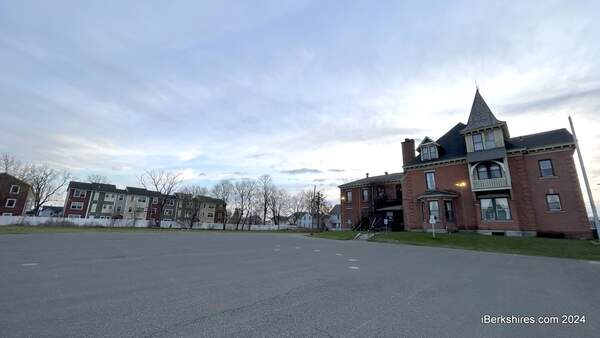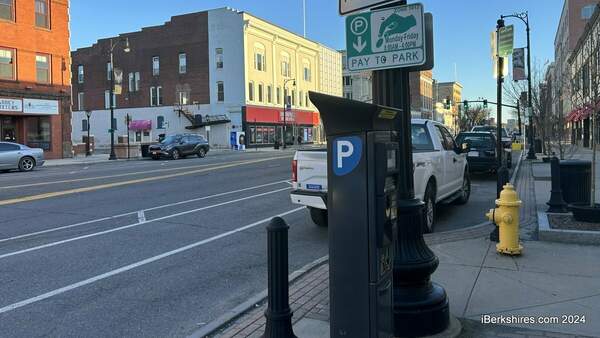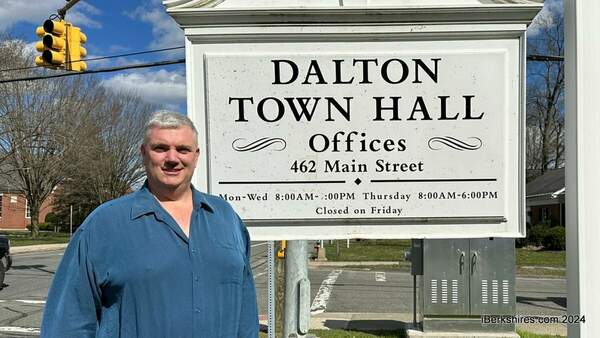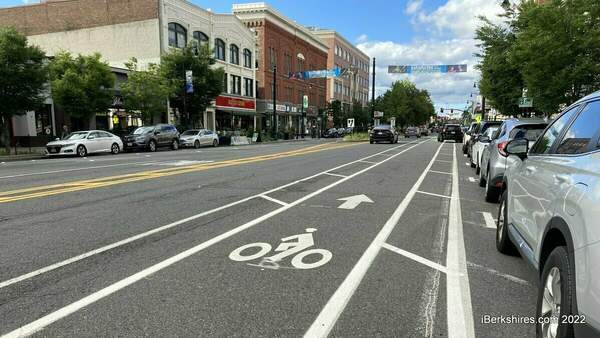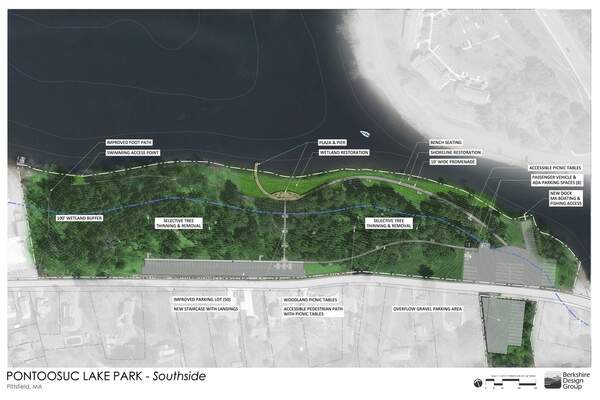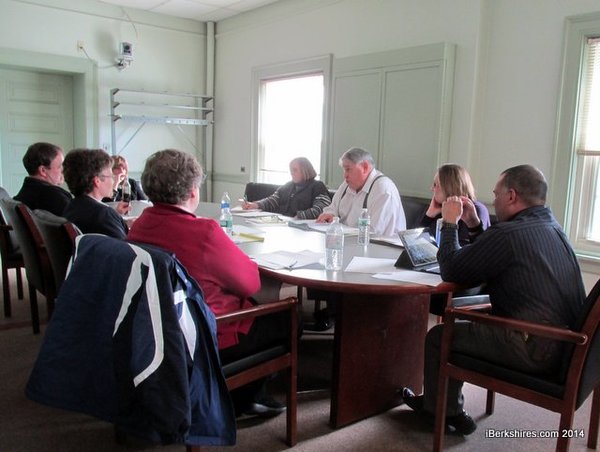
Raising Pittsfield Traffic Violation Fines Proving Difficult
 City Solicitor Kathleen Degnan explains to Councilors Christopher Connell and Melissa Mazzeo the various aspects of the city code. City Solicitor Kathleen Degnan explains to Councilors Christopher Connell and Melissa Mazzeo the various aspects of the city code. |
PITTSFIELD, Mass. — A group of city officials is finding that changing the fine structure for pedestrian, parking and moving violations isn't as simple as it seems.
A Police Advisory Committee's traffic subcommittee met with two city councilors, the city solicitor and representatives from police, fire and the tax collector's office on Tuesday to sort the legal steps needed.
They found the city's code is convoluted, referring to multiple state codes, and only 19 of the state laws are covered by city ordinance.
(A task force is currently researching the alignment of the city charter and code.)
Changing the fee structure will have to be done in steps, they said.
First, Police Advisory Committee member and attorney Alan Righi will be meeting with City Solicitor Kathleen Degnan to craft language that gives the Police Department the authority to write state law violations with city ordinances — meaning the city would reap all of the ticket cost instead of having the state take some of it.
"It doesn't work because Chapter 13 [of the city code] is incompatible with parts of the state statutes," Righi said.
For example, if a city officer pulls a motorist over for not stopping at a stop sign, he has to look up which code to write moving violation under. Officers currently have two ticket books — one for state violations and another for city violations.
Changing that language would allow police to write all tickets under city ordinance, ease the city's handling of tickets and setting the stage for future fine changes.
Fines also have to be in line with state regulations on how expensive they can or will be. That would only cover moving violations, so parking would be the next conversation.
"We have to amend [city code] significantly," said Police Chief Michael Wynn.
After amending the code for parking violations, they will then look at streamlining the ticketing process. Currently, the parking clerks, Fire Department, Police Department and tax collector have varying systems. Police often can't tell which tickets had been written by another department nor can they tell if they have been paid.
"We can't have it all at once. It needs to be in steps," said City Council President Melissa Mazzeo, who along with Vice President Christopher Connell began the conversation.
Getting the same parking software in place also poses difficulty, according to Righi, because the software is specific to the type of device it is used on. The Parking Department, which is separate from the Police Department, has handheld devices. The city would have to spend $3,500 per unit to equip the officers with the same equipment.
The committee agreed that equipping everyone with the same software would increase efficiency but it is difficult to say if more revenues would be generated.
"I'm not a revenue-generating department. I don't want this to be a conversation about revenue," Wynn said in response to questions about an increased number of tickets.
But those are the type of numbers Mazzeo wants to know so she can help sell the investment to the mayor, she said.
Nonetheless, the group felt that those changes would have to be coupled with a full parking program headed by the administration because of the number of departments it affects.
Degnan and Righi said they don't expect the first step of giving police authority to ticket all state laws under city ordinance will take long but will require research. The city code is filled with references to other laws and codes, which need to be sorted.
"There are a lot of interconnections with these statutes," Degnan said.
Tags: advisory committee, fines, parking, traffic violations,

